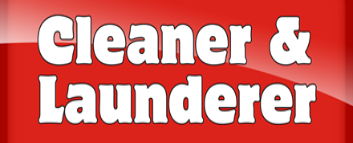As the pandemic recedes and we return to some form of normalcy, we must all take a serious look at where we have been, and where we are going. This is not the first time that we have had to consider changes in the drycleaning industry. My late father, Sid Tuchman, founder of Tuchman Cleaners in Indianapolis, recognized that changes were coming as we were about to enter a new century and a new millennium. The article below is based on a speech Sid gave at an IDC Conference in Toronto in 1999. His wise words still apply today!
*
What will it take to be successful in the New Millennium? Something different from what it took to be successful in the past century. The first thing to recognize is that we are going to have to change. We have a natural fear of change, and that is why we hold on to old paradigms, belief systems and attitudes.
What if the old paradigm or belief system is wrong? Here are a few examples of what I consider harmful paradigms: “Don’t work too hard.” “Don’t speak unless you’re spoken to.” “Don’t go where you’re not wanted.”
Here are other paradigms that stifle risk-taking: “Don’t bite off more than you can chew.” “Don’t go out on a limb.” “Don’t go too far too fast.” “Don’t get too big for your britches.” (My father used to say that to me every time I opened a new store!)
How about these paradigms that encourage us to avoid commitment? “Don’t love too deep, you might get hurt.” “Don’t make a commitment, you might get burned.”
In the book Growing Pains, Eric Flamholtz describes the four stages of business. Let’s look at where we have been in order to know where to go in the future.
Stage I: Identifying and defining a market niche within which to develop products and services. Maybe a franchiser or equipment salesman convinced you that a particular location was perfect. Or you were a corporate executive who had been downsized and were convinced that the drycleaning business is where you would make your fortune. Or someone said “Drycleaning prices are too high,” and you said, “Let’s start a one-price per piece system. Low-price drycleaning will tap an unserved market.”
Once you have identified your market, you then have to develop the products and services to satisfy the need. Then you have to develop all the business systems and hire competent people to satisfy the identified need.
A successful Stage I company exhibits the ability to function on a day-to-day basis. It has success in finding a location, making a profit, hiring and developing loyal, enthusiastic and competent employees. And exceeding customer expectations with quality service delivered on time.
When you are successful in Stage I you experience rapid growth. How do you know when you are ready for next phase? Decide whether the following are problems for your business that you need to address:
• Employees feel there are not enough hours in the day.
• Employees spend too much time “putting out fires.”
• There are not enough competent people on staff.
• Training programs are inadequate for all levels of personnel.
• The boss feels he has to do it himself if he wants it done correctly.
• When plans are made there is little follow-up, so nothing gets done.
• My profit-&-loss statement shows a profit, but where is the money?
Stage II: The ability to acquire resources and develop complex operational systems. What are the keys to a successful Stage II firm? The ability to acquire resources (a better layout, computer system, more staff) and the ability to develop the complex operational systems your business requires:
Warren Buffet says he has been successful because he buys only or invests in businesses that he understands. Most are pretty simple, he says, and only have a few factors critical to their success. Coca-Cola has a unique franchise or brand, and the key element that predicts its success (or failure) is the ability to sell more soft drinks every year.
The drycleaning industry is subject to five Critical Success Factors:
• We must completely understand and satisfy our targeted customers;
• We must satisfy our customers through quality and service;
• We must have a skilled, motivated and loyal workforce;
• We must search for new business opportunities, services and products; and
• We must make a profit.
All we have to do is perform better than our competitors and we will have successful and thriving businesses. Each of these Critical Success Factors requires the development and institutionalization of operational systems.
Let us look at the subject of shirt quality as an example of these complex operational systems. We must identify what our markets expect a laundered shirt to look like (perfect collar, no broken or missing buttons). Then, we must document the exact procedures necessary to produce a shirt like this.
If you do not document the procedures involved, your quality is dependent upon the experience of each new shirt operator. The inspector needs to be trained under a procedure to maintain consistent quality. We must document systems for marking-in, drycleaning, marketing, finance and budgeting.
If you want consistency in your operation, every system must be documented and taught in your training program. Otherwise, there is inconsistency, turnover, burnout and other undesirable things that can happen.
All of you must have an operations manual documenting all your systems that is tied into a management and training program. Unless we take the time to document systems, train employees to meet our customers’ expectations and our profitability goals, we will never be Stage II companies.
Putting off writing and documenting your operational systems is like thinking you can save up a lifetime of sex for your old age. It doesn’t work. It is the same way with documenting your operational systems: have to do it now!
Stage III: Develop and formalize management systems. Now that your business has graduated from managing to grow on an ad-hoc basis, it has reached Stage III. What are the telltale signs that management systems are required?
As entrepreneurs, we must wear three hats: those of technician, manager and visionary/leader. Drycleaners often start out as disenchanted drycleaning employees who felt they could do it better, but flounder because they can’t manage the chaos.
I got into the business because I thought I knew something about sales and marketing. It wasn’t long before I had developed eight routes and ten stores. The sales were pouring in, but there were no profits. I quickly learned that if I were going to prosper, I needed to learn something about management and finance.
Just because you understand the technical work of a business does not mean you understand that business. Knowing how to clean, spot and press clothes does not qualify you to manage a business profitably.
Managers do things right while leaders do the right thing. Managers were rearranging the deck chairs while the “Titanic” was sinking; leaders called for the lifeboats. A CSR is dutifully marking-in an order and finishes the order before waiting on a customer. She is marking-in the order correctly, however is she doing the right thing? Of course not! She should be waiting on the customer.
Stage IV: Managing the corporate culture. Twenty-first-century corporations will find it hard to survive unless they get better work from their employees.
This means having employees who take active responsibility for their behavior develop and share information about their jobs, and empower themselves to shape lasting solutions to fundamental problems. We have to manage the culture of our companies to make this possible.
Employees are key to customer satisfaction. They are our greatest asset, our most strategic competitive advantage, and key to profitability. We must have a company culture that encourages employees to think every minute of the day, “How can I help improve the productivity and profitability of this company? How can I improve customer satisfaction?”
It is truly arrogant on our part as owners to think we are the only ones who think in our company. I visit a different plant every month and ask employees how they like working there. Invariably, they answer, “The people are nice and the boss has created a family environment.” I then ask, “If you were the boss, what would you change to make things better around here?” My staff is usually silent because of old paradigms: “Don’t speak unless you’re spoken to. Don’t go where you’re not wanted. Don’t get too big for your britches.” Even though they have been asked, they are reluctant.
A culture that encourages involvement and empowers employees to act produces ideas. Cleaners, pressers and CSRs suggest all sorts of good ideas. Your job as the leader of your organization is to choose the right people and create an environment in which everyone can succeed. This means collaboration and teamwork among people at every level of the company. You must become the coach and counselor, not just the executive. We must all break some of those old paradigms that do not work for us.
How will you know if you are successful through the four stages of business? When your company produces financial strength. And that can only be accomplished by generating a team of people who support and nurture each other.

